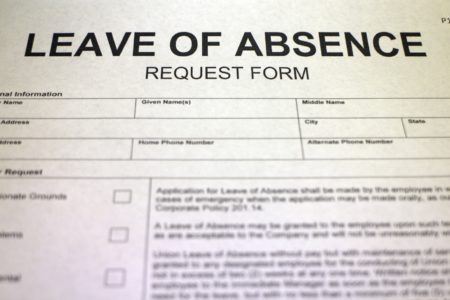
Last week, the Eleventh Circuit found that an open-ended extension of leave without pay is not a reasonable accommodation under the Americans with Disabilities Act. See Billups v. Emerald Coast Utilities Auth., No. 17-10391, 2017 WL 4857430 (11th Cir. Oct. 26, 2017). Roderick Billups suffered an on-the-job injury on December 18, 2013 and he began FMLA leave on December 19, 2013. The FMLA 12-week period expired on March 12, 2014, while Billups was still out on leave. He underwent surgery on April 16, 2014 and on May 27, 2014 his physician restricted him to sedentary work.
In early June 2014, Billups’ employer, Emerald Coast, sent him a notice that he would likely be terminated because of his inability to perform the essential functions of his job with or without reasonable accommodation. At a “hearing” on June 19, 2014, Billups provided some evidence that he might be cleared for duty by July 15, 2014. Nevertheless, on June 23, 2014, Billups was terminated because of a continuing inability to perform the essential requirements of his job. Billups continued medical treatment and was cleared to return to work without restrictions on October 23, 2014.
In January, I discussed another case from the Eleventh Circuit (Here) finding that a leave of absence is a reasonable accommodation only if it allows employees to “perform the essential functions of their jobs presently or in the immediate future.” Because Billups received more than six months of leave before the termination decision, and could not return within the immediate future, the Court found that an extension was not a reasonable accommodation.
The Billups decision comes on the heels of a similar decision by the Seventh Circuit Court of Appeals, Severson v. Heartland Woodcraft, Inc., which is discussed here: 7th Circuit Rejects Leave as Accommodation. The Severson decision is slightly more noteworthy, because it directly addresses a policy from the EEOC requiring it as a reasonable accommodation: EEOC on ADA and Leave. The Court reasoned “[i]f, as the EEOC argues, employees are entitled to extended time off as a reasonable accommodation, the ADA is transformed into a medical-leave statute-in effect, an open-ended extension of the FMLA.”